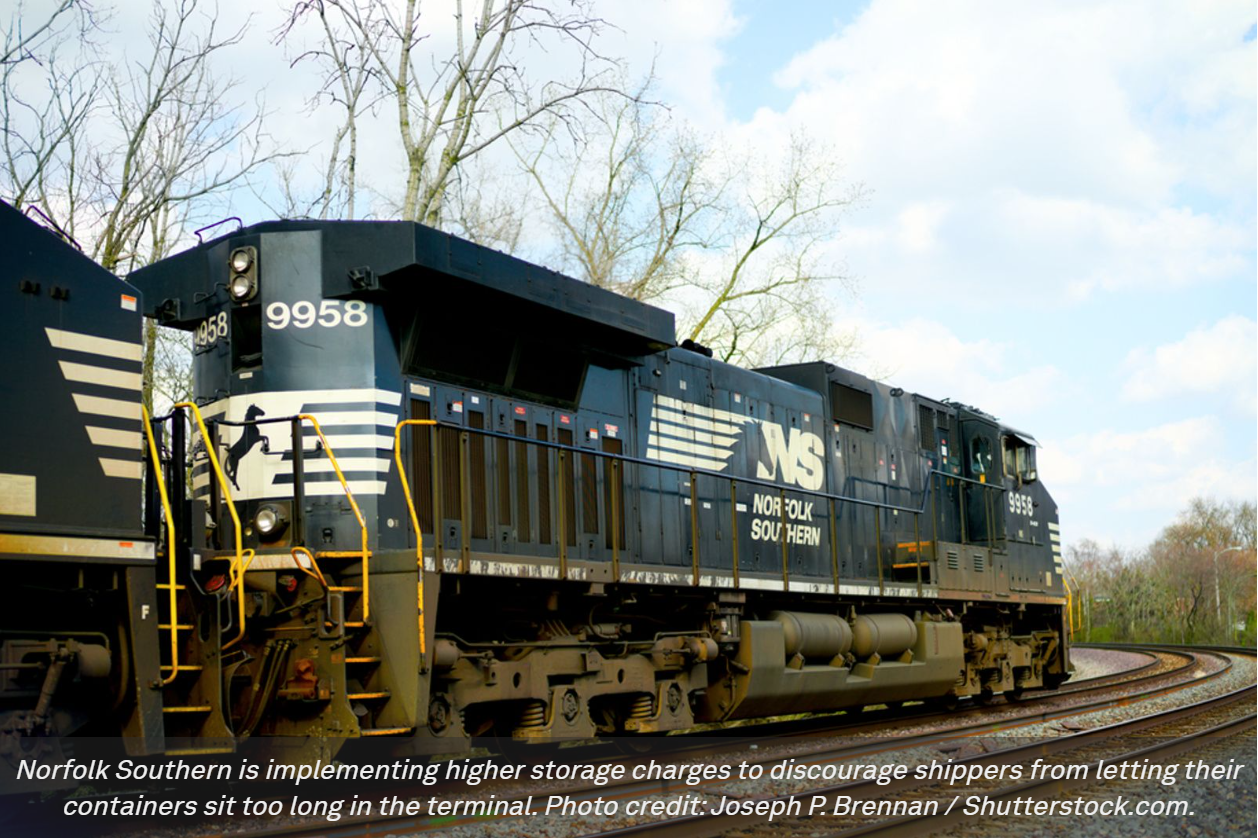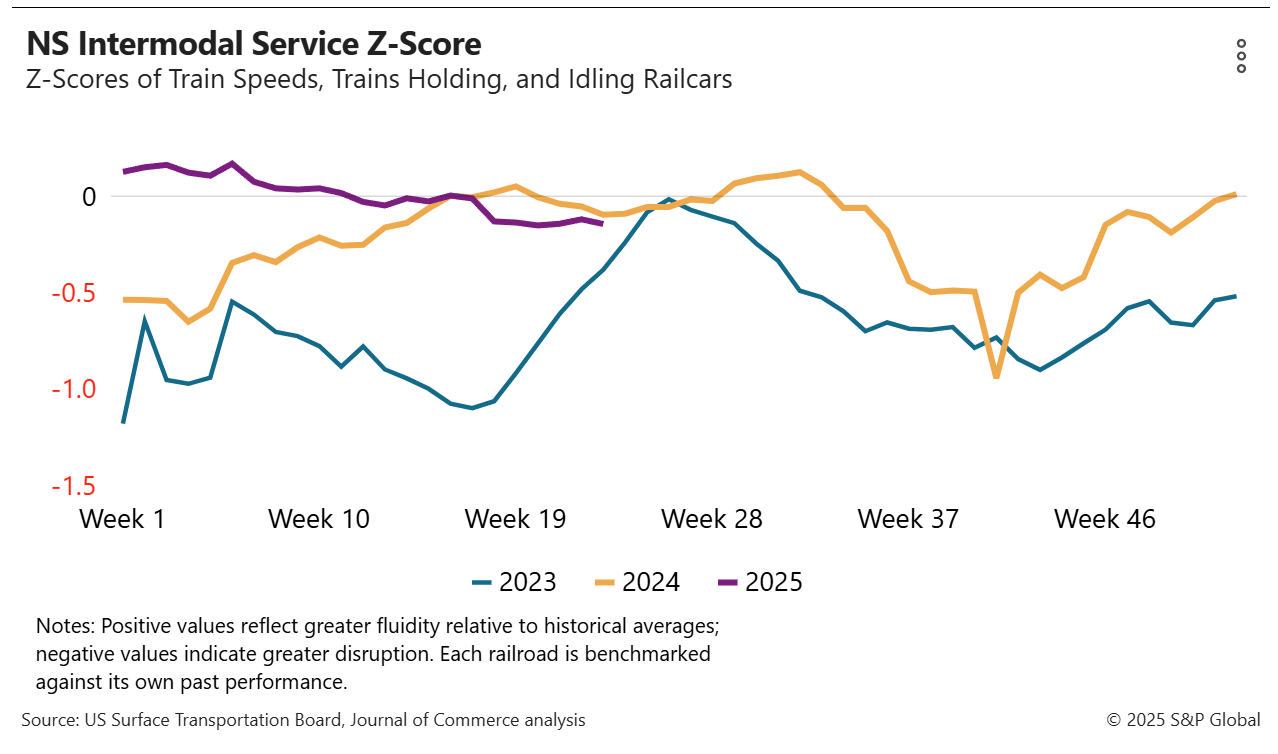
Norfolk Southern Railway (NS) will temporarily increase storage fees on cargo owners who do not retrieve their containers promptly, a measure the railroad says is intended to preserve terminal fluidity amid an expected surge in freight volume.
The higher storage fees, a form of demurrage, will apply to ocean containers available for pickup beginning July 7. NS said the storage fees will be rolled back to current levels once port activity slows down.
Domestic intermodal loads are not affected.
Under the fee structure, ocean containers left more than two days beyond the free-time window will incur daily penalties of $200 per day, double the standard $100 rate. The fee rises to $300 after six days, up from the usual $200.
An importer that leaves a container at an NS terminal for seven days beyond the free-time allowance would pay $1,500 per box, compared with $900 under the standard storage scale.
The free-time window won't change.
In major terminals, the shipper has the day of notification plus an additional 24 hours to get the container out without penalties. If NS notifies the shipper after 5 p.m. local time, the next calendar day is treated as the start of the free-time period.
'Well-positioned' to handle volume surge
Meanwhile, NS' intermodal network has been steady so far this year. The railroad's intermodal traffic, both international and domestic containers, was up 3.5% through the end of May compared with the first five months of last year, according to data from the Association of American Railroads.
“If we have any kind of surge that folks have been talking about, we're well-positioned to handle it,”Jason Zampi, NS'CFO, said Tuesday at a Wells Fargo investors conference.

NS' Intermodal Service Z-score, as measured by the Journal of Commerce, has hovered near zero, indicating service levels remain close to long-term norms dating back to 2017. The metric compares intermodal train speeds, intermodal trains holding, and loaded intermodal railcars idling for more than 48 hours each week with the railroad's own historical averages, as reported to the US Surface Transportation Board.
Intermodal train speeds have been faster than the long-term average in 12 of the first 22 weeks, while the number of loaded intermodal railcars sitting idle for more than 48 hours was evenly split — 11 weeks above average, 11 below.
NS in January introduced a mandatory appointment system at its Landers terminal in Chicago for retrieving ocean containers from terminal stacks. The new system may face its most significant test yet in the coming weeks.

